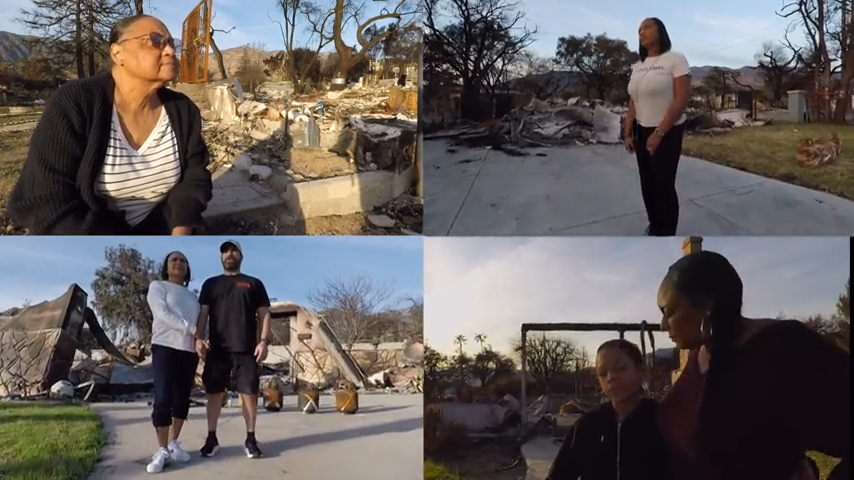After months of negotiations and the nation’s largest healthcare workers strike ever, Kaiser Permanente and union members make a tentative deal.
Unions representing 85,000 health care workers have reached a tentative agreement with industry giant Kaiser Permanente following a strike over wages and staffing levels, the parties announced Friday.
The deal includes setting minimum hourly wages at $25 in California, where most of Kaiser's facilities are located, and $23 in other states. Workers will also see a 21% wage increase over four years. The ratification process is scheduled to begin next week.
Both sides said they prioritized patient health care during their talks. Steve Shields, Kaiser’s senior vice president of labor relations, said the deal will not effect rates.
The three-day strike last week involving 75,000 workers in multiple states officially ended last Saturday and workers returned to their jobs in Oakland, California-based Kaiser’s hospitals and clinics that serve nearly 13 million Americans. Union members said understaffing is boosting the hospital system’s profits but hurting patients, and executives had been bargaining in bad faith during negotiations.
Get top local stories in San Diego delivered to you every morning. Sign up for NBC San Diego's News Headlines newsletter.
“Millions of Americans are safer today because tens of thousands of dedicated healthcare workers fought for and won the critical resources they need and that patients need,” said Caroline Lucas, executive director of the Coalition of Kaiser Permanente Unions, in a statement Friday. “This historic agreement will set a higher standard for the healthcare industry nationwide.”
The tentative agreement also includes protective terms around subcontracting and outsourcing, as well as initiatives to invest in the current workforce and address the staffing crisis. The workers’ last contract was negotiated in 2019, before the COVID-19 pandemic.
“We have an interest in helping build the health care workforce of the future,” Shields said during a news briefing Friday with both sides.
California
President Joe Biden applauded the tentative deal in a statement Friday, echoing his support for the health care unions. The president last month joined picketing United Auto Workers in Michigan on the 12th day of their strike against major carmakers, becoming the first known sitting president in U.S. history to join an active picket line.
“We owe a tremendous debt to health care workers and the hard-working men and women who make their work possible,” Biden said Friday in a statement. “Health care workers and support staff kept our hospitals – and our nation – going during the dark months of the pandemic. They had our backs during one of our nation’s toughest times. We must continue to have theirs.”
Acting U.S. Labor Secretary Julie Su participated in the negotiation sessions.
California Gov. Gavin Newsom signed a law Friday night to raise the minimum wage for health care workers to $25 per hour over the next decade.
Hospitals and labor unions agreed to the wage increase during the final weeks of the legislative session. Newsom had previously signed a law increasing the minimum wage to $20 per hour for fast food workers, which takes effect in April. California’s minimum wage for all other industries is $15.50 per hour.
The Kaiser strike for three days in California, as well as in Colorado, Oregon and Washington was a last resort after the health system's executives ignored the short-staffing crisis worsened by the coronavirus pandemic, union officials said.
The coalition had given the company notice that another strike from Nov. 1 to Nov. 8 was possible and the Oct. 31 expiration of a contract covering the Seattle area would enable another 3,000 workers to join picket lines.
Their goal was to bring the problems to the public’s consciousness for support, according to the Coalition of Kaiser Permanente Unions. Some 180 workers from facilities in Virginia and Washington, D.C., also picketed but only on Wednesday.
The strikers include licensed vocational nurses, home health aides and ultrasound sonographers, as well as technicians in the radiology, X-ray, surgical, pharmacy and emergency departments.
“No health care worker wants to go on strike,” Lucas said Thursday. “I hope that the last few days have helped escalate this issue.”
The company warned the work stoppage could cause delays in people getting appointments and scheduling non-urgent procedures.
Unions representing Kaiser workers in August asked for a $25 hourly minimum wage, as well as increases of 7% each year in the first two years and 6.25% each year in the two years afterward.
Kaiser, which turned a $2.1 billion profit for the quarter, said in a statement last week that it proposed minimum hourly wages between $21 and $23 depending on the location. The company said it also completed hiring 10,000 more people, adding to the 51,000 workers the hospital system has brought on board since 2022.



